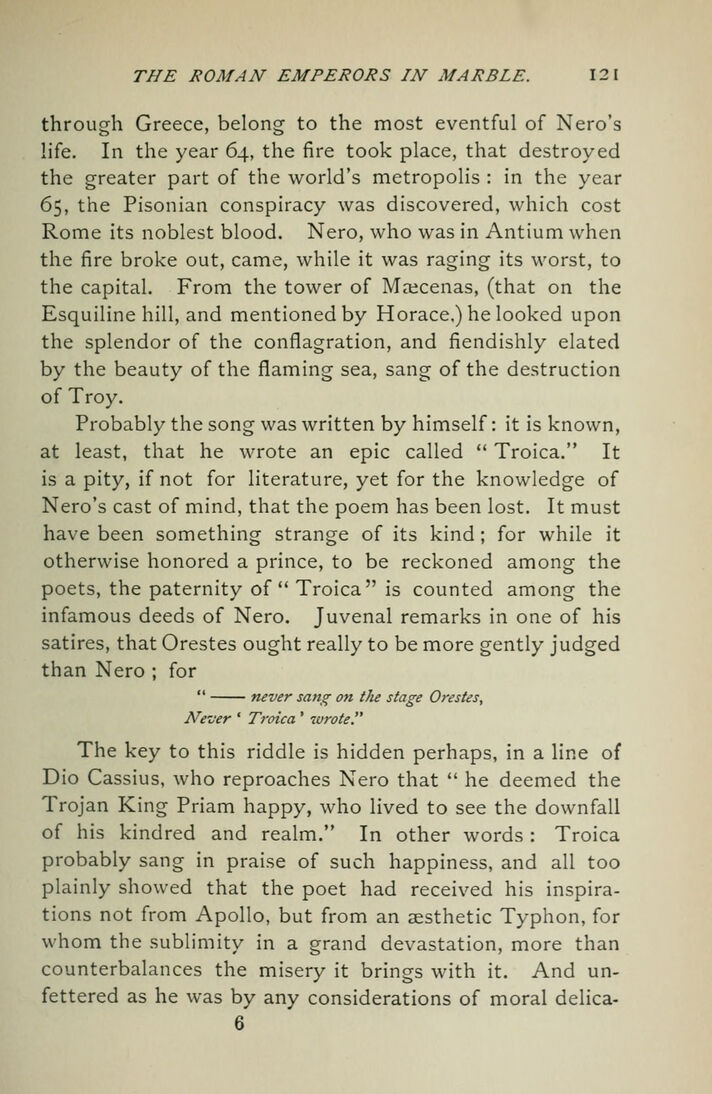
Full resolution (JPEG) - On this page / på denna sida - The Roman Emperors in Marble - 5. Nero

<< prev. page << föreg. sida << >> nästa sida >> next page >>
Below is the raw OCR text
from the above scanned image.
Do you see an error? Proofread the page now!
Här nedan syns maskintolkade texten från faksimilbilden ovan.
Ser du något fel? Korrekturläs sidan nu!
This page has never been proofread. / Denna sida har aldrig korrekturlästs.
THE ROMAN EMPERORS IN MARBLE. 121
through Greece, belong to the most eventful of Nero’s
life. In the year 64, the fire took place, that destroyed
the greater part of the world’s metropolis : in the year
65, the Pisonian conspiracy was discovered, which cost
Rome its noblest blood. Nero, who was in Antium when
the fire broke out, came, while it was raging its worst, to
the capital. From the tower of Maecenas, (that on the
Esquiline hill, and mentioned by Horace.) he looked upon
the splendor of the conflagration, and fiendishly elated
by the beauty of the flaming sea, sang of the destruction
of Troy.
Probably the song was written by himself : it is known,
at least, that he wrote an epic called " Troica." It
is a pity, if not for literature, yet for the knowledge of
Nero’s cast of mind, that the poem has been lost. It must
have been something strange of its kind ; for while it
otherwise honored a prince, to be reckoned among the
poets, the paternity of* Troica" is counted among the
infamous deeds of Nero. Juvenal remarks in one of his
satires, that Orestes ought really to be more gently judged
than Nero ; for
" never sang on the stage Orestes,
Never ’
Troica ’
wrote."
The key to this riddle is hidden perhaps, in a line of
Dio Cassius, who reproaches Nero that " he deemed the
Trojan King Priam happy, who lived to see the downfall
of his kindred and realm." In other words : Troica
probably sang in praise of such happiness, and all too
plainly showed that the poet had received his inspira-
tions not from Apollo, but from an aesthetic Typhon, for
whom the sublimity in a grand devastation, more than
counterbalances the misery it brings with it. And un-
fettered as he was by any considerations of moral delica-
6
<< prev. page << föreg. sida << >> nästa sida >> next page >>